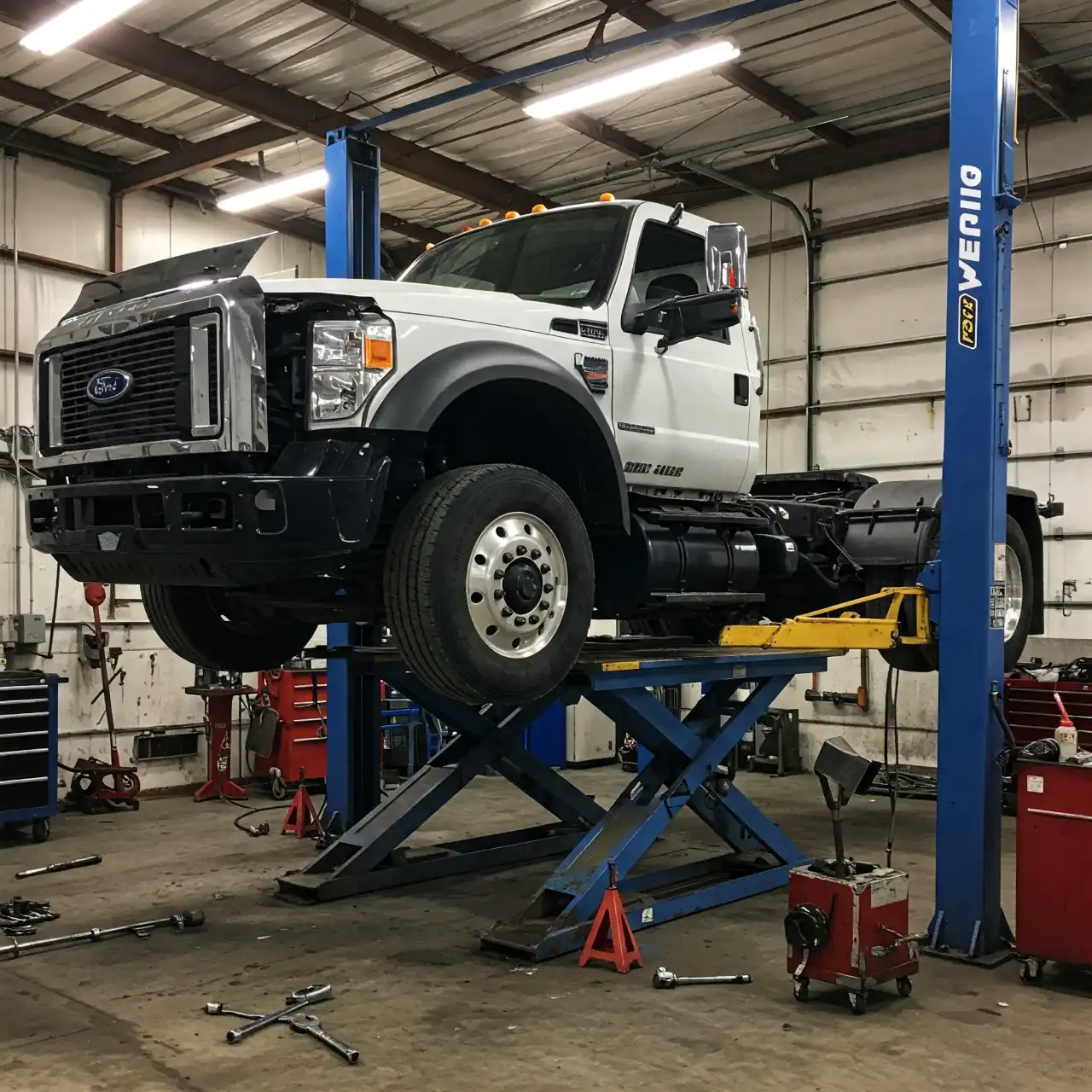Discover the six most frequent medium-duty truck repairs, from brake systems to transmission problems. Learn how to spot trouble early and keep your truck on the road.

Medium-Duty Trucks: Built Tough, But Not Invincible
Let’s get one thing straight: medium-duty trucks are the workhorses of the commercial world. Whether you’re running local deliveries, utility services, or short-haul logistics, these rigs carry the load day in and day out. But even the toughest trucks have limits. Over time, wear and tear are inevitable—and when things start to fail, they usually fail at the worst possible time.
At NTC, we’ve seen hundreds of these trucks come through our bays, and while every fleet is a little different, there are six repairs we see over and over again. Knowing what’s coming can save you serious cash—and help you plan your maintenance schedule like a pro.
1. Brake System Overhauls
First up—and no surprise here—brake system repairs. Medium-duty trucks typically use hydraulic or air-over-hydraulic brake systems, and they get a real workout, especially in urban environments where stop-and-go traffic is the norm.
Common Repairs Include:
- Worn-out brake pads or shoes
- Warped rotors or drums
- Sticking calipers
- Brake fluid leaks
- Master cylinder failures
If you hear squealing, grinding, or feel a soft pedal, don’t wait. Delayed brake repair can lead to increased stopping distances—or worse, total brake failure.
2. Suspension and Steering Component Failures
Even if you’re not bouncing over rough terrain, suspension components wear out faster than most people expect—especially leaf springs, bushings, and shock absorbers. And don’t even get us started on steering issues.
What to Watch For:
- Uneven tire wear
- Excessive bouncing or swaying
- Steering wheel play
- Clunking or knocking noises on turns
Failing to fix these components not only creates a safety hazard but can also lead to premature wear on tires and other systems.
3. Cooling System Repairs
Medium-duty engines run hot—literally. Between hauling cargo and idling in traffic, your cooling system has to work overtime. Over time, parts degrade or clog, and when that happens, overheating is right around the corner.
Usual Suspects:
- Cracked radiators
- Failing thermostats
- Leaky water pumps
- Corroded coolant lines
- Bad fan clutches
Overheating can lead to a blown head gasket or even a cracked engine block—both of which come with eye-watering repair bills. Stay ahead of it with coolant flushes and system inspections.
4. Fuel System Issues
Modern medium-duty diesels rely on high-pressure fuel delivery systems to meet power and emissions demands. While they’re incredibly efficient when everything works, the reality is, components like injectors, pumps, and filters can and do fail over time.
Signs of Trouble:
- Difficulty starting
- Reduced fuel economy
- White or black exhaust smoke
- Hesitation or surging under load
If contaminants get into your fuel system or you’re dealing with a bad fuel filter, the damage can escalate quickly. This is one area where preventive maintenance makes a huge difference.
5. Transmission Problems
Let’s be honest—transmission issues are expensive and frustrating. Whether you’re working with an automatic, manual, or automated manual transmission (AMT), medium-duty trucks eventually run into trouble.
Common Problems:
- Hard or delayed shifting
- Slipping gears
- Fluid leaks
- Faulty torque converters
- Worn clutch assemblies (manuals)
Ignoring transmission warning signs can lead to catastrophic failure. Regular fluid checks, filter changes, and clutch adjustments can keep you on the road longer—and out of the shop.
6. Electrical and Sensor Failures
These days, trucks are rolling computers. That means electrical issues aren’t just annoying—they can sideline a perfectly good vehicle. From faulty sensors to wiring harness gremlins, problems here are increasingly common.
Likely Offenders:
- Check engine lights tied to sensor failures
- Battery drain or alternator problems
- Corroded ground connections
- Failed relays or modules
Medium-duty trucks rely on electronics to manage everything from emissions to fuel injection and transmission shifting. When sensors fail, the truck can derate or go into limp mode, costing you serious downtime.
Real Talk: These Repairs Are Inevitable
No matter how well you maintain your fleet, some repairs are just part of the lifecycle. But catching them early—and understanding the signs—makes all the difference. Here’s what we recommend:
Fleet Maintenance Tips:
- Create a service schedule that includes monthly system checks
- Train drivers to report early warning signs (noise, vibration, loss of power)
- Invest in digital diagnostics tools or work with a shop that has them
- Keep detailed repair logs to identify recurring issues
- Don’t ignore small issues—they snowball fast in medium-duty rigs
At NTC, we believe knowledge is horsepower. The more you know about your truck’s common weak spots, the better you can prepare and prevent.
Conclusion
Medium-duty trucks are built to hustle—but they aren’t invincible. Whether it’s brakes, suspension, cooling, fuel, transmissions, or electronics, these systems will all need attention eventually. Knowing what’s likely to go wrong gives you a leg up on preventive maintenance, reduces unexpected downtime, and keeps your operations rolling smoothly.
So don’t wait until your truck's whisper becomes a scream. Plan ahead, listen to your rig, and when the time comes, trust a shop that knows these trucks inside and out.
News & Articles
Here, you'll find regular articles covering a wide range of topics related to diesel repair, maintenance, and troubleshooting.
Don't Take our word for it.
Read Customer Testimonials.
"My truck was repaired very quick. The price was reasonable. Thank you guys. Will use your services for sure!!!"
"I can recommend this place to everyone, there are friendly and experienced mechanics here who do their job well, the prices are not exaggerated."
"Very reliable and easy work with guys. I service my fleet with them, always on time and prices are below the market. Would highly recommend them!"
Contact Us
Let us know what is going on with your vehicle, and we will get back to you soon with a quote.

